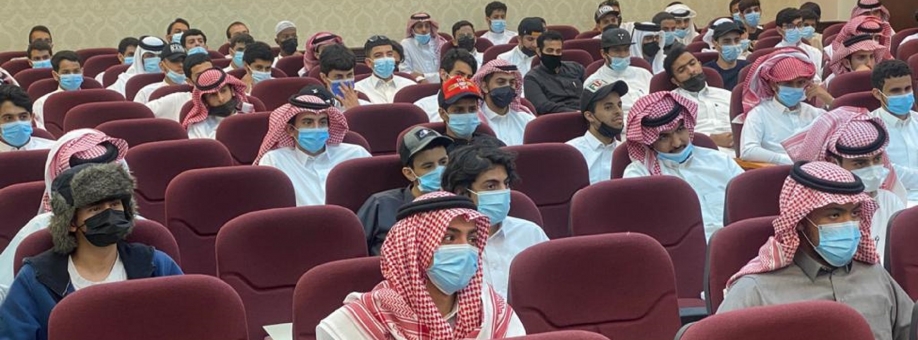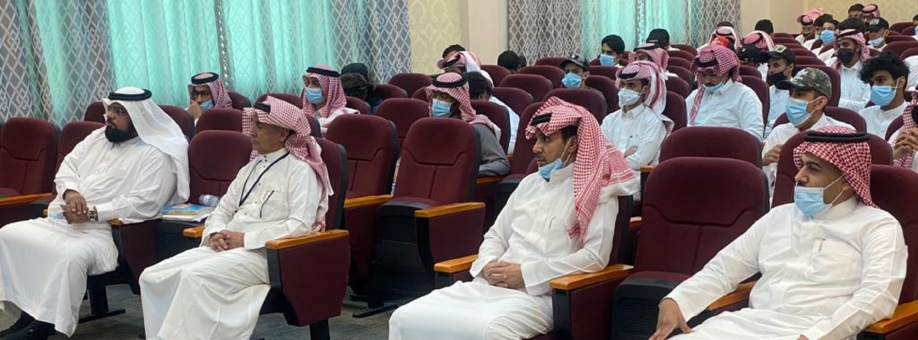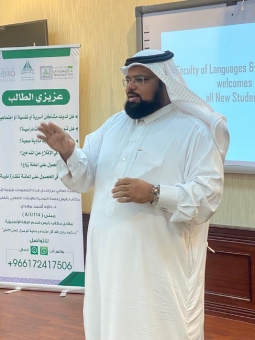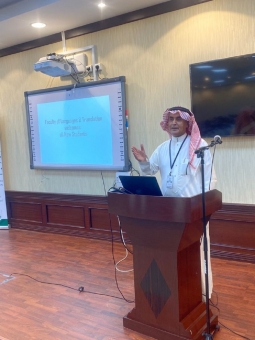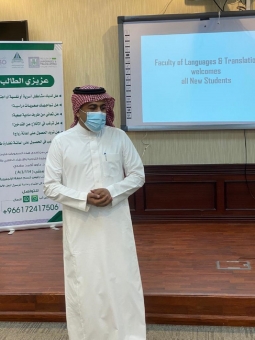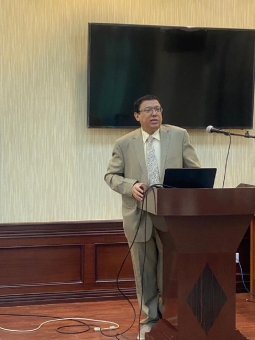Future Job Prospects for English Graduates
On 27 October 2021, Vice Dean for Academic Development & Quality, Dr. Abdulrahman Almosa, delivered a webinar to 60 participants organized by the Alumni Unit of the Faculty of Languages and Translation under the coordination of Mohsin Raza Khan. The webinar — titled "Future Job Prospects for English Graduates" — addressed the importance of durable skills. The webinar was developed to provide Bachelor of Arts in English program students and alumni with additional activities for their professional development, consistent with the intended learning outcomes and labor market developments.
"There are ten major competencies also known as durable skills that will ensure a successful career. They are leadership, character, collaboration, communication, creativity, critical thinking, metacognition, mindfulness, growth mindset, and fortitude. A great way to build those durable skills is volunteering. Volunteering will introduce you to both private industry and non-profit organizations. For example, you can learn more about project management by organizing events, which will also develop your leadership abilities and sales skills because you will recruit other volunteers to help you," began Dr. Almosa. He then pointed out that the new economy is skills-based, highlighting that we have entered the Fourth Industrial Revolution. Although having strong technical skills will always help, Dr. Almosa continued to reinforce that soft skills mean a lot. "You will need to be able to solve problems and work in teams. Actually, you will have to solve problems that do not exist yet, and you need to be comfortable continually learning new skills to solve problems," he said.
"I want to draw your attention to the Aseer Region Development Strategy. The strategy was launched by HRH Crown Prince Mohammed bin Salman bin Abdulaziz Al Saud and aims to create the conditions necessary for sustainable growth. Our region will be an all-year-round world destination, and students from the Bachelor of Arts in English program will have many job opportunities," said Dr. Almosa.
Of noteworthy mention, Dr. Almosa is well-positioned to guide our students on how their skills match the region's workforce needs, as he was the recipient of an award in October 2021 from His Royal Highness Prince Turki bin Talal bin Abdulaziz, Governor of Aseer, for his outstanding contribution to the region's strategic planning.
The Bachelor of Arts in English program at the Faculty of Languages and Translation is committed to communicating with its alumni and involving them in events and activities. Please click here to view a recording of the event.
Date: 10/27/2021
Source: Faculty of Languages and Translation

